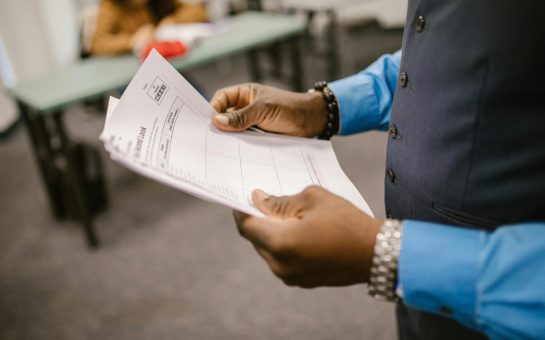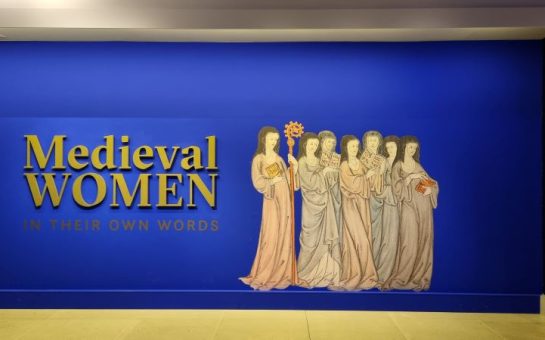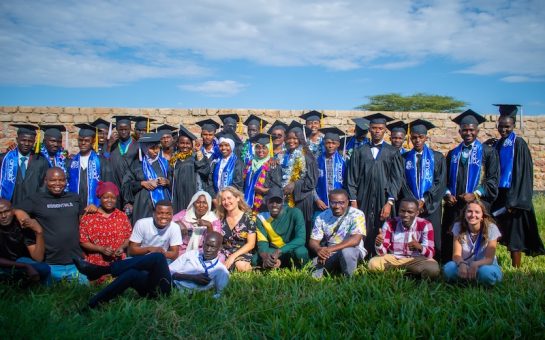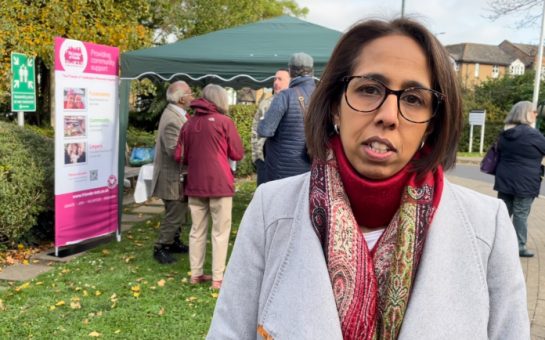Chancellor Rishi Sunak last week recommitted to the Government’s August 2019 spending plan to the increase the budget for schools by an extra £7.1bn by 2022-23.
But UK education spending fell by about 14% in real terms between 2010–11 and 2018–19, according to the IFS’ November report.
Whereas, EdTech investment grew by 91% from 2018-19, and UK corporations earned 41% of all EU EdTech investment in 2019, according to May figures compiled for the Digital Economy Council.
In April, the Department for Education announced a partnership with Google and Microsoft to provide UK schools with technical support and access to education platforms.
As small content creators to multinationals vie for increasing access to children’s online activity, South West Londoner spoke to EdTech and digital professionals on the development of children’s content and the changes caused by the coronavirus pandemic.
The EdTech ex-head
Leon Hady is founder of Guide Education.
He has launched several online products including platforms for student revision and teacher training, and a YouTube channel with more than 5,000 subscribers sharing GCSE content.
Hady previously worked as a teacher and headteacher.
What does Guide Education do?
Our main focus is teacher training but we also do a lot of student support. We train about 15,000 teachers around the world, work with nearly 700 schools and we’ve taught just over 500,000 children.
Tell me about your background as a teacher and a headteacher
While I was doing my first Masters, I volunteered in a primary school. That’s when I realised that this is the best thing in the world. I got to be an English teacher, then head of department, then an Advanced Skills Teacher, then an assistant head.
I was approached to take over a new free school, which was failing. It was an opportunity I really relished. We were fortunate to take our Ofsted rating to outstanding, which I’m really proud of.
Someone high-up in the Government said: “If we give you five other schools, can you do this again?”
And I thought: “I’d have to make a completely different school based on the needs of the area.”
But some of my methodologies were really strong, and I always figured that I could do this for the Government, or I could do it for myself.
So I did the whole remortgage, put your life on the line, max every credit card thing and thankfully it worked out.
Why did you branch into creating YouTube content?
There’s a book that you’ve probably heard of called ‘Of Mice and Men’. I love it, but one of the problems with teaching is sometimes you can rip the soul out of a book.
One day I was teaching my Year 10s and Year 11s ‘Of Mice and Men’. Then I had a cover lesson, which was also ‘Of Mice and Men’. Then I had a tuition lesson, which was also ‘Of Mice and Men.’ I just lost my mind.
So I started to make YouTube videos on it. After four weeks or five weeks they had 6,000 views.
Within the last year and a half, we hit a million views just for English tutorials.
How did that success feel?
When the videos first became popular, you felt everywhere was your classroom. It was nice, and after every set of exam results, there could be thousands of people saying: “Thank you, you changed my life.” But I thought, how can I can do this better?
That’s what led me to launch the second and third YouTube channels. I found maths and science teachers who I thought were charming and I paid them to do what I was doing for English.
That was a whirlwind three years to go from nothing to where I am now. Bashing your head against the wall, borrowing money, maxing every credit card was irrelevant.
Have you seen a change in the use of your learning resources this year?
It’s gone through the roof. In the five years we’ve been running Tuitionkit, we’ve had around 450,000 subscribers. In the last three of four months, we’ve probably had 150,000 more.
As for teacher training, we probably did as much business in these three months as we did in the preceding two years. We started in 2018 with six schools. From the middle of 2018 to January this year, we went up to 400. From March to July we got to nearly 700 schools.
But not everyone’s been able to afford it. The COVID crisis has hit schools so badly. The government seems to have been very, very slow to respond financially. Teachers are buying stuff themselves. But people recognise, I suppose, the need for what we do.
How important are online learning resources?
Paramount.
In November last year, I went to a country where kids know that if they get bad grades, they will be beaten at home. A teacher told me that the problem is students are terrible in class, but they’re great with homework and grades.
I said: “How can that be if they’re not behaving well enough to be taught?”
And he was like: “Yeah, they all teach themselves from YouTube.”
For me that really sums up how strong access to online delivery is.
The equality educator
Another producer of educational content is Olly Pike, Director and “CEU” (Chief Executive Unicorn) of Pop’n’Olly, which produces LGBTQ+ equality educational resources.
Pike creates children’s stories, videos, and teaching materials. Pop’n’Olly’s YouTube channel has more than 16,500 subscribers and 2.3 million views. His work saw him placed 77th on this year’s Rainbow Honours Pride Power List.
What is Pop’n’Olly?
Pop’n’Olly is an LGBT+ edutainment resource, used by children, parents, carers and teachers. Our videos and books are used across the UK and beyond to teach about equality and diversity, while ultimately helping to combat LGBT+ prejudice before it can even begin.
When and why did you launch it?
Back in 2012, I started creating content on YouTube. But I didn’t start taking it seriously until 2014, when I started to include LGBT+ characters in the videos. And that’s when I noticed everything was really starting to take off.
I made a video about different types of families that was inclusive of same-sex couples. That video went a bit viral, and was picked up by a lot of LGBT+ online media outlets. That sent me down the path of creating inclusive content as the company has grown and grown.
It took me by surprise when I found out that primary schools were using my videos because I created them thinking it would be those same-sex couples that would be usually using them.
What sorts of resources do you provide?
Firstly, the videos, and we have hundreds of them on YouTube. Then because the videos were so popular, I decided to turn some of them into books.
Now, I have six books ranging from stories about gay princes to a transgender Cinderella story, to a story about healthy relationships, and other inclusive stories.
This year, in response to the pandemic we have started creating classroom resources, available to members. They are principal work sheets, lesson plans and guides that can be downloaded and printed to use alongside the free videos.
What age ranges are these targeting?
It does span across quite a large age range. We create content for reception and Key Stage 1 children, from ages four to seven, about different types of love.
Then we have other videos aimed at Key Stage 2, which is ages eight to 11, which explore different identities and ideas about gender and sexuality in an age appropriate way.
We also have content that can be used by lower Key Stage 3, which is 11+. That content actually has me in it, and I’m talking about past relationships in a very nonchalant way. That’s designed for more of a teenager audience.
With the younger children it’s about familiarising them with different types of people. With the older children you can go a bit deeper, and look at what’s happened in the past, what we can do to make things better in the future for everyone.
It’s 20 years since Section 28 was repealed. How important is educating children on equality?
It’s vital if we’re going to combat LGBT+ prejudice, if we’re going to combat racism, if we’re going to combat ableism. Everything’s connected. Even those of us who know a lot about this can learn even more, and it’s important to pass that on to younger generations and let them learn as well.
Do you think that a third party organisation like Pop’n’Olly is necessary to support existing curriculums taught in schools?
I would say we’re helping. The government has provided updated sex and relationship guidance, which was welcomed. However, it is somewhat up to the schools to decide how they want to cover these subjects. Sometimes I think that can be a bit daunting, especially if it’s a new topic. That’s where Pop’n’Olly steps in to help.
How important are the digital resources that you produce, particularly those that can be accessed outside of school?
When we first went to lockdown, I thought ‘Oh, thank goodness we have these things so our work can still continue’. My business is pretty much a hundred percent online, creating content so that everyone can view.
Has your content strategy changed this year?
Unlike other online people who tend to create content based on current issues and affairs, I tend to create evergreen content.
But what tends to happen is it suddenly becomes irrelevant. I made a video three years ago about what discrimination is and how to combat it. That did okay. But when Black Lives Matter brought discrimination to the forefront of everyone’s mind, that went viral.
So that’s the kind of content I make. I decided to continue what I was doing as I know that information is going to be useful, whether now or in the future.
This year I decided to focus more on the downloadable and printable resources, and memberships.
Have you noticed any change in your audiences this year?
I wouldn’t say there’s been a significant change but the audience is always growing positively. Although, at the beginning of lockdown, I did see some paying members fall away, unfortunately. But I managed to regain them and kept going.
And what type of feedback have you received from teachers, parents, and children?
It’s always hugely positive. I probably don’t acknowledge it enough and appreciate the positive feedback because I’m always thinking about the next thing.
The satisfying slimer
Talisa Tossell produces slime products and content.
Slime is a substance used for sensory play, which can act as both a solid and a liquid when handled.
It exploded in popularity online in 2017, creating an industry of content creators who produce and review the product.
Tossell navigated this explosion successfully.
Her YouTube channel boasts more than two million subscribers and half a billion views, including almost six million in the past month.
A hashtag of her name, used by fans and other creators to show her their content, has been used on more than one million Instagram posts, and her TikTok videos have been liked more than 17 million times.
What is your job?
My job is producing content for social media. For the most part it’s YouTube but I also get sponsorships from companies. That’s the only part that’s been affected by lockdown so far.
How did you start?
It was really by luck. In 2016, I found slime on Instagram. Because my phone didn’t have enough space to save all the videos I liked, I posted them to what was essentially a burner account, and got about 5000 followers in the first week. Then, over six months, 800,000.
Everyone was asking ‘How do you make this stuff?’, so I made my first YouTube video on slime. At the time, I already had 90,000 subscribers from producing lifestyle related content but I didn’t expect it go anywhere. I came back after a six month break and that video got two million views. And so I said, ‘Okay, this is my job now.’ I thought it would last maybe three months, and it’s been more than three years doing this professionally. That’s been really great.
What is slime?
[Laughs]. It’s a stress-relieving sensory toy. It’s a fun thing to play with, but for the most part it’s a relaxing product.
Why do you like it?
I like how creative you can be with it. You can change all the scents, you can make it look gorgeous. Its just funny, as well. It’s relaxing.
What demographics watch your content?
You would think it’s kids but it’s mostly adults. Kids are my smallest demographic. They make up 10% of my audience. The largest demographic is 18-24, followed by 24-30.
How has the lock-down affected your work?
A lot of businesses are shut down, which means that ads aren’t as readily available as they usually are. Everyone’s earnings were down by about 50% in summer. Lockdown has also affected sponsorships because companies are trying to stay afloat so they’re not sponsoring people.
But in terms of filming, lockdown hasn’t affected me because I film from home. I’ve been really lucky in that respect.
And what advice would you give on starting a business from home?
I don’t think you need to pour a ton of money into setting up things. You need to grasp the basics alone at first, and then you need to expand from there in whichever way is right.
A good of way of expanding your business is doing videos on social media. At the moment I think I’d recommend Tik Tok because it has the most new, user-friendly approach so you can grow in a way that you can’t on other platforms.




